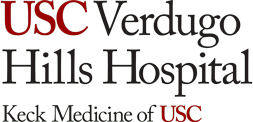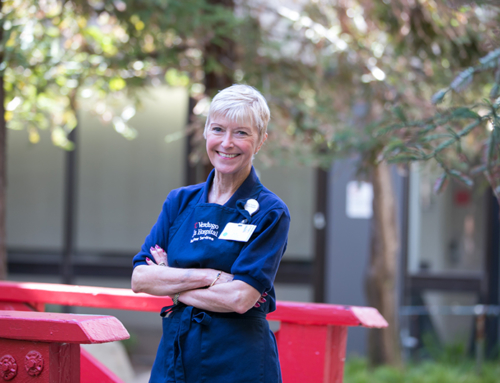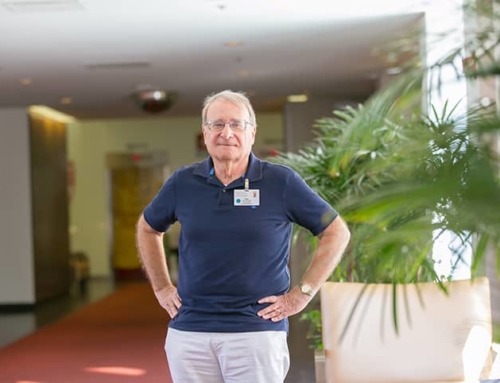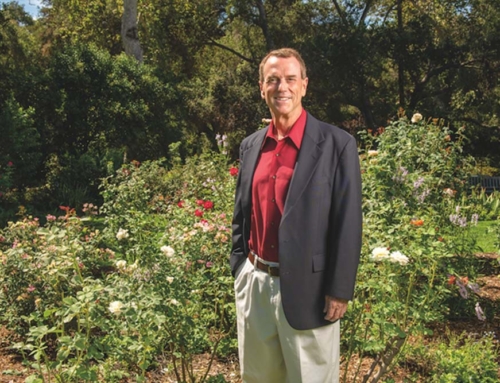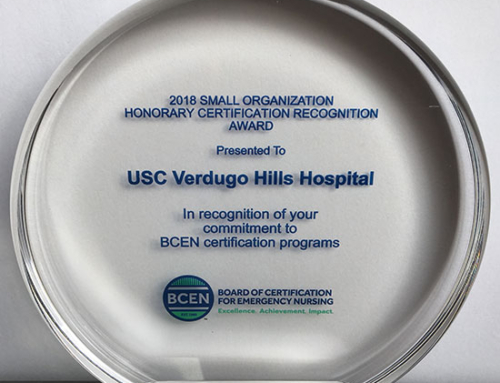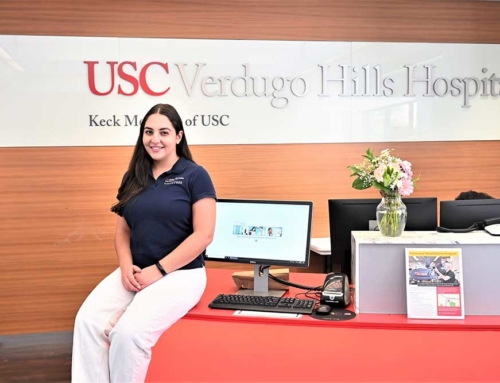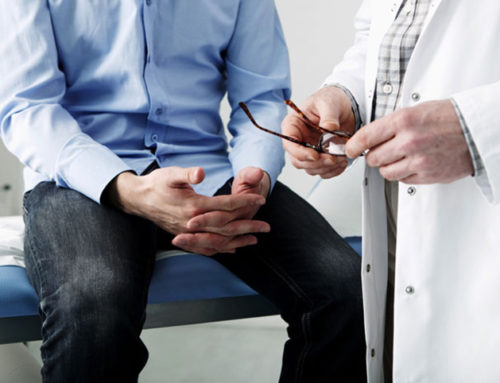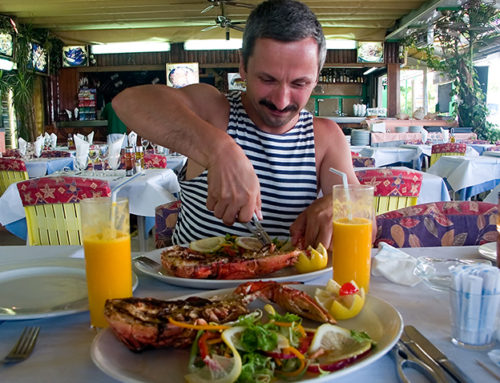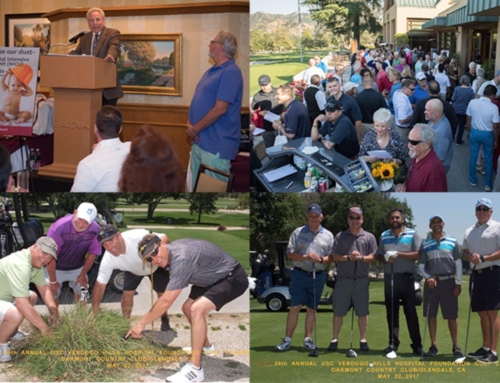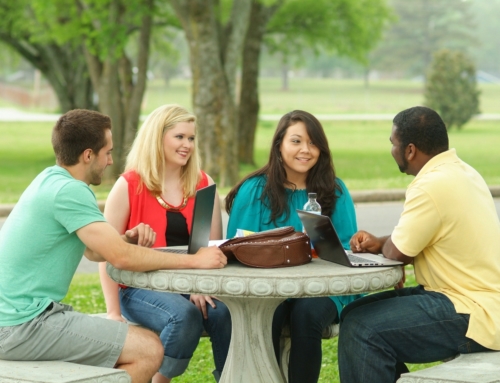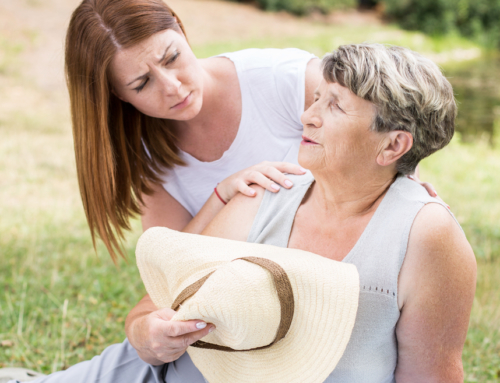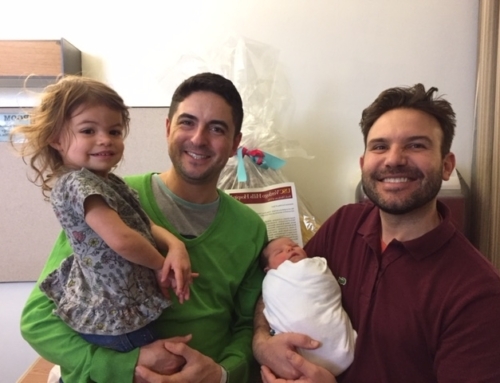This July, USC Verdugo Hills Hospital (USC-VHH) is celebrating five years as members of the Trojan family.
Keith Hobbs MBA, joined USC-VHH as CEO in January 2016. He focused on working to raise the hospital’s standards as both a hospital and a community partner, as well as improving its reputation.
“We have made incredible strides,” says Keith. “Our affiliation with Keck Medicine of USC gives USC-VHH patients better access to specialized care. We offer the expertise of an academic medical center without ever having to leave the community.”
Hobbs said Keck Medicine has made it possible for USC-VHH to offer state-of-the-art technology and upgrade its facilities. The hospital’s technology investments include the da Vinci Surgical System surgical robot, a high-intensity frequency ultrasound (HIFU) device and a Xenex disinfection robot for superbug infections. In March, the hospital opened its new neonatal intensive care unit (NICU). The 3,100-square-foot, level II NICU has six private suites, each one equipped with state-of-the-art medical equipment and 24-hour webcam access to the baby’s incubator on a secured, private server.
In recent years, the hospital’s quality and safety ratings have increased and there have been significant improvements in patient satisfaction surveys in the Emergency Department. USC-VHH has received numerous awards in the past five years, including being named 2017 Business of the Year by the Crescenta Valley Chamber of Commerce, received Center of Excellence status for the Joint/Hip replacement program, 57 USC-VHH physicians in 18 specialties being named as Top Doctors of 2017 by Pasadena Magazine, and the American Heart Association/American Stroke Association’s 2018 Get With The Guidelines®-Stroke Gold Plus Quality Achievement Award.
USC-VHH has expanded specialty services, which include orthopaedic, spine and urologic surgery, and also expanded its surgical offerings. Surgical options now include vascular, bariatrics, colorectal, upper GI and general (including breast cancer surgery), plastics and reconstruction and endovascular therapy.
“We’ve weathered the storm and are doing pretty good,” said Leland Watkins, MD, a family medicine and geriatrics physician who has seen many changes in his 41 years working at the hospital. “Becoming part of Keck Medicine was necessary because we were a small community hospital without access to some of the things that merging with Keck Medicine afforded us. But we still have the community hospital feel. There’s a very friendly relationship among the physicians and staff, we are loyal to the hospital and want to see it succeed.”
Phil Muchnik began serving as a volunteer at USC-VHH in 2011. He echoes sentiments that while the hospital has gone through a tremendous transformation, it hasn’t lost its familiar community hospital feel.
“The hospital’s reputation has improved and I think it’s because the new administration reaches out more and makes themselves available,” said Muchnik, who volunteers four days a week. “The emergency room has improved and so has its reputation. The attitude here now is let’s make it a better experience for people.”
